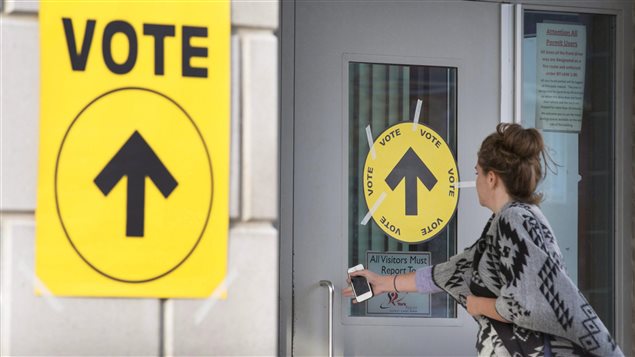Two-thirds of Canadians (66 per cent) see changing the country’s electoral system as a low priority, according to a new public opinion survey released today.
The survey results seem to support Democratic Institutions Minister Maryam Monsef comments that she hasn’t found enough support to justify changing how Canadians elect their MPs, despite Liberal campaign promises to do so.
However, three-quarters (75 per cent) of Canadians would like to see a referendum on any major changes to the electoral system if and when they are introduced, according to an online survey conducted by the Angus Reid Institute (ARI).
Canadians do see the potential benefits of overhauling the country’s traditional First Past the Post (FPTP) voting system but the mechanics of alternative electoral models leave them somewhat confused, the survey said.
The survey respondents were shown sample FPTP ballots – as well as sample ballots from systems that have either been proposed to a House of Commons committee looking into Canada’s voting system, or are in use in other countries, said Shachi Kurl, the institute’s executive director.
(click to listen to the full interview with Shachi Kurl)
ListenThe poll asked respondents to interact with voting system ballots and answer questions as to the clarity of each, as well as their views about the systems represented by each ballot.
Respondents were asked about four alternative voting systems: Mixed Member Proportional (MMP), Single Transferable Vote (STV), List Proportional Representation (LPR) and Rural-Urban Representation (RUPR), as well as the current, First Past the Post system.
The survey shows that the MMP and the LPR models are almost as preferred by Canadians as the FPTP system, Kurl said.
“At the same time, they also found the ballots, particularly the MMP ballot, more confusing than some of the other ballots and definitely more confusing than First Past the Post,” Kurl said.
As the parliamentary committee prepares to table its final report on Dec. 1, the survey provides ammunition to both opponents and proponents of changing Canada’s voting system, Kurl said.
On the one hand, there is some openness in Canada to see a voting system that more closely reflects popular vote in the allocation of seats in the House of Commons, Kurl said.
“At the same time, there isn’t exactly a great mandate or desire to go headlong into changing the way we vote,” Kurl said in a telephone interview from Vancouver.







For reasons beyond our control, and for an undetermined period of time, our comment section is now closed. However, our social networks remain open to your contributions.